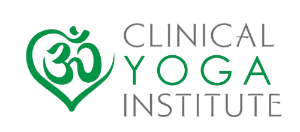Yoga is a practice that has been around for centuries, with its roots in ancient India. It has gained immense popularity in recent years, not only for its physical benefits but also for its mental health benefits. Integrative yoga therapy is a holistic approach to yoga that focuses on creating a sense of well-being and balance in both the mind and body.
Integrative yoga therapy combines traditional yoga practices with modern therapeutic techniques to address mental health issues such as anxiety, depression, and stress. The practice of yoga involves a combination of physical postures, breathing techniques, and meditation, all of which have been shown to have a positive impact on mental health.
One of the key benefits of integrative yoga therapy is its ability to reduce stress and anxiety. The practice of yoga encourages deep breathing and mindfulness, which can help calm the nervous system and reduce the body’s stress response. Studies have shown that regular practice of yoga can help lower levels of cortisol, the stress hormone, leading to a greater sense of calm and relaxation.
In addition to reducing stress, integrative yoga therapy can also help alleviate symptoms of depression. The physical postures and breathing techniques practiced in yoga can help release tension and promote feelings of well-being. Yoga also encourages a focus on the present moment, which can be particularly helpful for those struggling with negative thought patterns associated with depression.
Furthermore, the practice of integrative yoga therapy can improve overall mental health by fostering a sense of self-awareness and self-compassion. The mindfulness aspect of yoga encourages individuals to become more in tune with their thoughts and emotions, allowing them to better understand and process their feelings. This self-awareness can lead to greater self-acceptance and a more positive outlook on life.
Integrative yoga therapy can also be a powerful tool for enhancing emotional resilience. By practicing yoga regularly, individuals can develop coping mechanisms for dealing with challenging situations and emotions. The mindfulness and breathing techniques learned through yoga can help individuals stay grounded and centered in the face of adversity.
In conclusion, integrative yoga therapy is a valuable tool for enhancing mental health. By combining traditional yoga practices with modern therapeutic techniques, individuals can experience a greater sense of well-being and balance in their lives. Whether you are looking to reduce stress, alleviate depression, improve self-awareness, or build emotional resilience, integrative yoga therapy can be a helpful practice to incorporate into your daily routine.
Find out more at
Clinical Yoga Institute | Online Accredited Yoga Teacher Training
https://www.clinicalyogainstitute.com/
United States
Embark on your journey to become a certified clinical yoga practitioner with our evidence-based online yoga teacher training program. Tailored for mental healthcare professionals, our flexible learning schedule fosters a supportive community of like-minded peers. Earn 30.5 NASW CEUs as you progress towards becoming a skilled professional in clinical yoga.
